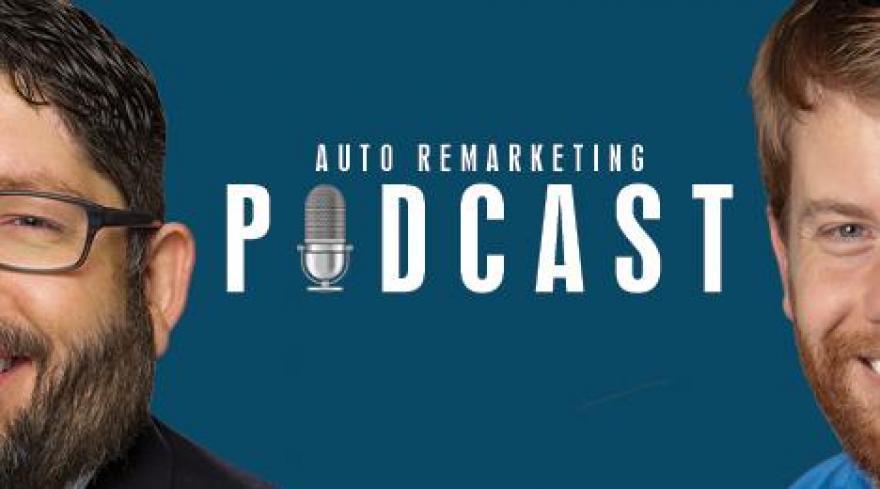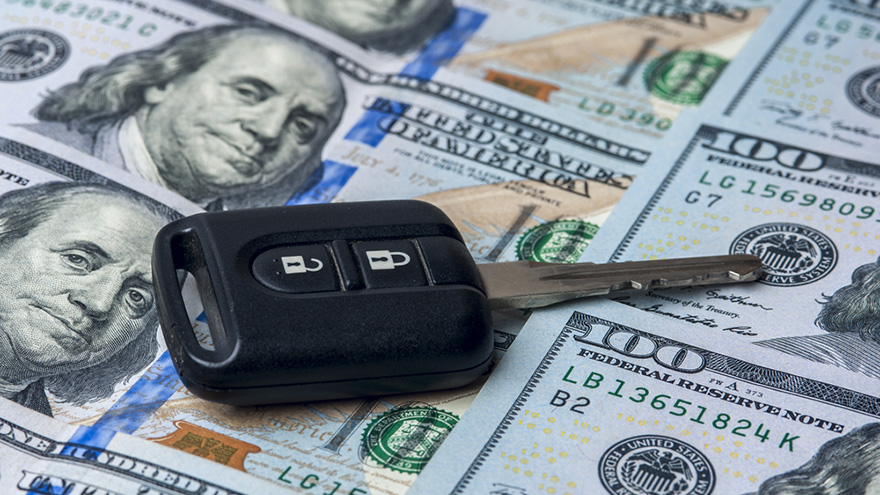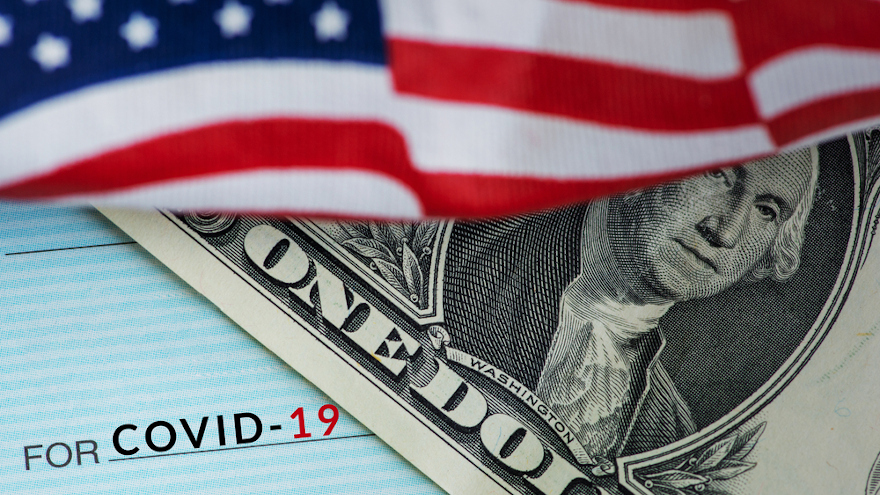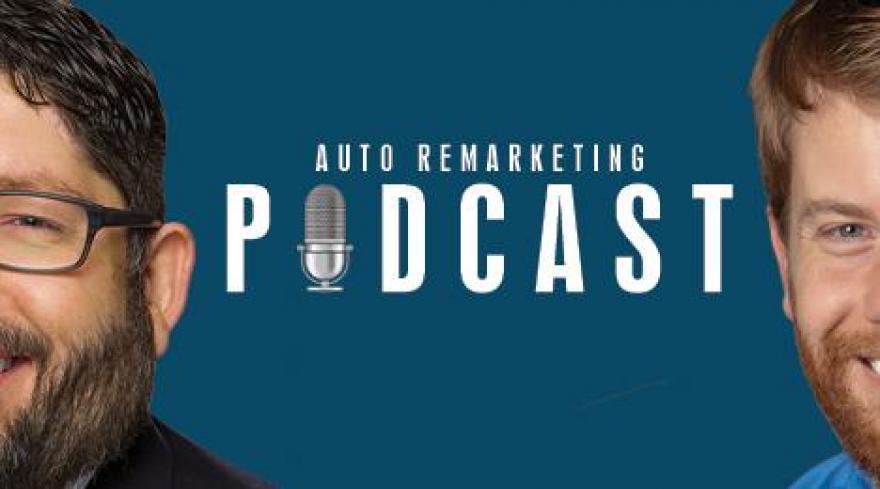Anne Holtzman and Suzi Straffon of Allied Solutions returned to the podcast to describe how different their company tasks are nowadays with many collections activities on hold and insurance claims reduced — all because of shelter-in-place orders and other restrictions happening because of the coronavirus pandemic.
Senior editor Nick Zulovich also asked Holtzman and Straffon for recommendations to handle the expected spike in servicing when regular business finally resumes.
To listen to this episode, click on the link available below, or visit the Auto Remarketing Podcast page.
Download and subscribe to the Auto Remarketing Podcast on iTunes or on Google Play.
Being a publicly traded company, Credit Acceptance revealed current collection and origination performance trends that many other subprime auto finance providers also might be experiencing because of the coronavirus pandemic.
According to a filing with the Securities and Exchange Commission posted on Tuesday afternoon, Credit Acceptance said, “the current outbreak of COVID-19 has adversely impacted our business, and the continuance of this pandemic and any future outbreak of any other highly contagious diseases or other public-health emergency could materially and adversely affect our business, financial condition, liquidity and results of operations.”
As a result, Credit Acceptance indicated that it would delay the reporting of its first-quarter financial statement. The company said it expects to file its quarterly report no later than June 25 — 45 days after the original due date — and to file its proxy statement, including the 10-K Part III Information, on or about June 4.
Furthermore, Credit Acceptance delay its annual meeting of shareholders by more than 30 days, scheduling it for July 15.
Credit Acceptance’s SEC filing also included a three-paragraph update:
In an attempt to slow the spread of COVID-19, state governments have implemented social distancing guidelines, travel bans and restrictions, quarantines, shelter-in-place orders and shutdowns. These actions have caused economic hardship in the areas in which they have been implemented and have led to an increase in unemployment and resulted in many consumers delaying payments or re-allocating resources, leading to a significant decrease in our realized collections. We are working with our consumers to provide temporary relief where possible, including the suspension of involuntary vehicle repossessions. Additionally, many automobile dealers have been required to temporarily close or restrict their operations, and even for dealerships that have remained open, consumer demand has deteriorated. As a result, we have recently experienced a significant decline in consumer loan assignments. The spread of COVID-19 has also caused us to modify our business practices in an effort to increase team member safety, including reconfiguring workstations to increase physical distance between team members, limiting travel, and canceling physical participation in meetings and events, and we may take further actions as required by government authorities or that we determine are in the best interests of our team members. Our business operations may be disrupted further if significant portions of our workforce are unable to work effectively, including because of illness, quarantines, or other restrictions in connection with the COVID-19 pandemic.
There is no certainty that such measures will be sufficient to mitigate the risks posed by the disease, and our ability to perform certain functions could be negatively impacted. While the potential impact and duration of the COVID-19 pandemic on the U.S. economy and our industry in particular are difficult to assess or predict, the pandemic has resulted in significant disruption of financial markets, which may reduce our ability to access capital or our consumers’ ability to repay past or future consumer loans, and could negatively affect our liquidity and results of operations. In addition, a recession or further financial market correction resulting from the spread of COVID-19 could adversely affect demand for used vehicles. A continued disruption in our workforce, decrease in collections from our consumers or decline in consumer loan assignments could cause a material adverse effect on our financial position, liquidity, and results of operations.
The COVID-19 pandemic is rapidly evolving, and we will continue to monitor the situation closely. The ultimate impact of this pandemic or a similar health epidemic is highly uncertain and subject to change. The extent of the impact of the COVID-19 pandemic on our operational and financial performance will depend on future developments, including, but not limited to, the duration and spread of the pandemic, its severity, the actions to contain the disease or mitigate its impact, related restrictions on travel, and the duration, timing and severity of the impact on consumer behavior, including any recession resulting from the pandemic, all of which are uncertain and cannot be predicted. An extended period of economic disruption as a result of the COVID-19 pandemic could have a material negative impact on our business, financial position, liquidity, and results of operations, though the full extent and duration is uncertain. The COVID-19 pandemic may also intensify the risks described in the other risk factors disclosed in our annual report on Form 10-K for the fiscal year ended Dec. 31, 2019.
Reinforcing an earlier message about the need for teamwork and digitization as COVID-19 disrupts the F&I industry, Portfolio recently announced the launch of a new website for GAP and ancillary claims.
Portfolio said its new site features a fully redesigned interface intended to offer easy navigation and a better overall user experience.
Executives said users can quickly download forms and procedures, check the status of a claim, verify coverage and access contract claims manuals — all without printing a page or picking up the phone.
“Claims are a big part of Portfolio’s business, and we want every part of that process to be fast and friendly,” Portfolio chief operating officer Lori Hallissey said in a news release. “We would put our people and practices up against any other provider’s, and that’s the standard we applied to our new website.”
Hallissey said Portfolio’s new GAP and ancillary claims website is live now and accessible to all users, new and returning.
The site can be accessed at claims.portfolioco.com.
The site launch came after Portfolio executives announced a series of steps the F&I products and reinsurance provider has taken to minimize disruptions while its workforce and many of its agents, dealers and consumers adjust to government orders intended to slow the spread of the novel coronavirus.
“Our priorities are, in this order, the health and safety of our employees and partners, the wellbeing of our customers and the success of our company,” Portfolio president and chief executive officer Brent Griggs said. “We feel fortunate to work in an industry that plays a critical role in helping to keep Americans performing essential services on the road. We will continue to do that work in full compliance with all orders intended to bring this crisis to an end.”
Griggs said that out of concern for the welfare and success of Portfolio’s agents and dealers, the company distributed a summary of the benefits and requirements of the federal Coronavirus Aid, Relief, and Economic Security (CARES) Act and the U.S. Chamber of Commerce’s “Coronavirus Emergency Loans Small Business Guide and Checklist.”
Nearly all of the work performed at Portfolio’s Lake Forest, Calif., and Dallas offices is being done by employees from their homes in an effort to reduce the risk of spreading the virus and in compliance with stay-at-home orders issued by California Gov. Gavin Newsom and by Dallas County officials two days later.
As a result, Griggs reported that key business processes such as claims and reinsurance company administration have continued without interruption. The company is also accelerating three key initiatives undertaken with the help of its agents and dealers:
• Submit all signups and requests for rate cards and other sales tools electronically.
• Submit net remitting claims and cancellations through Portfolio’s online dealer portal.
• Initiate e-contracting and ACH payment processing at dealerships that have yet to adopt the technology.
“Without digitization, none of these things would be possible,” Griggs said. “Electronic contracting and rating, requests, remittances and payments are efficient and accurate. We need to work together, as an industry, to get everyone up to speed and prevail in challenging times.”
Kroll Bond Rating Agency (KBRA) acknowledged its March prime and non-prime auto loan ABS indices don’t yet reflect the depths of how the automotive asset backed securities market might be impacted by the coronavirus pandemic. Auto securitizations showed improving credit metrics stemming from March servicer reports connected to the February collection period.
The annualized net losses and 60-day delinquency rates fell in both of KBRA’s prime and non-prime readings, but analysts are projecting significant changes for their next report.
“March servicer reports will be the last to reflect loan performance before the coronavirus (COVID-19) pandemic led to a widespread disruption of the U.S. economy,” KBRA said in its latest report. “All eyes will be on April servicer reports (reflecting the March collection period) to see how the shutdown of most nonessential U.S. businesses and the resulting sharp increase in employee layoffs and furloughs have impacted auto loan ABS credit performance.
“The passage of the $2 trillion federal stimulus package on March 27, which included expanded unemployment benefits and recovery rebate payments, as well as borrower tax refunds and servicer relief programs should help to soften the blow — but by how much remains to be seen,” the firm went on to say.
For now, analysts have their latest data to consider that showed some cyclical, positive developments going into the crisis.
KBRA reported prime auto annualized net losses and delinquency rates in March fell 11 basis points and 7 basis points month-over-month to 0.62% and 0.41%, respectively. On a year-over-year basis, net losses and delinquencies in its prime index dipped 6 basis points and 4 basis points, respectively.
Meanwhile, analysts determined annualized net losses and delinquencies in KBRA’s non-prime index dropped 68 basis points and 63 basis points to 8.69% and 4.99%, respectively. However, KBRA pointed out losses and delinquencies remain somewhat elevated on a year-over-year basis, ticking up by 17 basis points and 5 basis points, respectively, versus March of last year.
KBRA closed by mentioned its analysis of March’s asset-level disclosures also showed credit metrics mostly improved during the February collection period.
Analysts learned the percentage of prime and non-prime contract holders who went from 60-days delinquent to current in March rose to 25.1% and 16.2%, respectively, representing improvements of 326 basis points and 273 basis points versus the previous month.
Furthermore, KBRA said the percentage of prime contract holders who rolled from 60 days or more past due to charge-off fell 48 basis points to 14.0%. But the report noted the percentage of non-prime contract holders moving from 60-day delinquency to charge-off climbed 37 basis points to 22.3%.
EFG Companies chief revenue officer Eric Fifield acknowledged the issue during a phone conversation with SubPrime Auto Finance News last week.
“Negative equity was a problem before, and it’s only going to be exasperated now,” Fifield said as the company again rolled out a program to help vehicle buyers handle negative equity if they encounter a life-changing event like a job loss — something that’s now been experienced by more than 22 million Americans during the past month.
As unemployment soars, the data from Edmunds indicated that negative equity is reaching new records, too.
According to data shared exclusively with SubPrime Auto Finance News, Edmunds executive director of insights Jessica Caldwell reported that three negative-equity records arrived in March. They included:
— Percent of new-vehicle sales with negative equity: 36.3%
— Percent of used-vehicle sales with negative equity: 28.7%
— Share of all new-vehicle sales with negative equity: 16.4%
Edmunds data also showed that the average amount of negative equity for new-vehicle sales in March came in at $5,225. For used-vehicle deliveries, that negative equity figure stood at $3,873, according to Edmunds.
Most mainstream automakers and their captives now offer financing programs that far more substantial than when 2020 began such as zero percent rates for 84 months with no payments for as long as 120 days. With incentives like those programs, Caldwell doesn’t see the negative-equity trend reversing any time soon.
"Generous financing offers from automakers such as zero percent for 84 months make sense for responsible consumers who intend to keep their vehicle until the wheels fall off,” Caldwell said in a message to SubPrime Auto Finance News. “However, many consumers get the itch to trade in and make a new purchase much sooner, so longer loan terms could lead more individuals down a road toward negative equity.
“Vehicle popularity often shifts in the U.S. to meet changing consumer preferences, which could also negatively impact the value of these vehicles,” she added.
What might be shifting faster consumer vehicle preferences is the volume of U.S. workers seeking federal unemployment benefits. On Thursday, the Department of Labor said another 5,245,000 individuals made their initial claim for benefits last week.
The Labor Department also said the largest increases in initial claims for the week ending April 4 were in Georgia (up 256,312), Michigan (up 84,219), Arizona (up 43,488), Texas (up 38,982) and Virginia (up 34,872)
Whether a recent vehicle buyer lives in one of those five states or elsewhere in the U.S., EFG Companies is trying to protect those consumers.
Last week, EFG re-launched the product behind the award-winning Hyundai Assurance Program — WALKAWAY Vehicle Return Protection. This automotive debt-protection product cancels up to $7,500 of negative equity associated with a vehicle purchase, regardless of age, health, or vehicle type, giving consumers the freedom to walk away from negative equity without impacting their credit.
WALKAWAY Vehicle Return Protection allows consumers the option to return their vehicle in the event any of these unforeseen life events occur:
• Involuntary unemployment
• Physical disability
• Loss of driver’s license due to medical impairment
• Self-employment personal bankruptcy
• Accidental death
• International employment transfer
After launching WALKAWAY as the Hyundai Assurance program during the Great Recession, Hyundai experienced an eight percent increase in unit sales while the rest of the industry declined by 21 percent. Over the next two years, the manufacturer grew market share by 57 percent.
Since bringing the product to market, EFG said it has positively impacted the vehicle purchasing decisions with WALKAWAY for more than 826,750 consumers across the United States and Puerto Rico.
“Successful dealerships are defined by how they support their customers,” EFG Companies president and chief executive officer John Pappanastos said in a news release. “This has never changed. What does change is the manner in which that support is delivered.
“Today, dealers have the opportunity to provide customers with extremely relevant and valuable protection regarding their finances and their ability to live their daily lives. This opportunity can serve dealerships as a true point of differentiation and avenue for revenue growth,” Pappanastos continued.
Fifield pointed out how important F&I solutions like WALKAWAY can be as dealerships are seeking new ways to retail vehicles during the crisis.
“Dealerships are certainly getting creative with how they’re retailing vehicles, whether it’s concierge services or deliveries at home. Just because the showrooms are not having a lot of traffic right now doesn’t mean dealers are not selling vehicles,” Fifield said.
“You see all of these incentives from the manufacturers are pushing the length of terms and deferred payments, it’s only going to drive bigger and deeper negative equity. But getting creative is important. The message to consumers is the vehicle will provide peace of mind in this uncharted territory we’re in,” he continued.
“We have a solution that gives customers peace of mind when they’re buying,” he added.
Fifield also emphasized the financial horsepower EFG has to operate program such as WALKAWAY.
“That’s a question we’re asked often. It’s great to have a great solution but it doesn’t make any difference if it’s short-lived,” Fifield said. “The good news is we’ve had this program available and offered by a variety of our partners since 2005. For 15 years, we’ve seen good times and bad.
“This program is not the product we do,” he continued. “We’re about to celebrate our 42nd year being an administrator. We’re partnered with an A-rated insurance backer that has a contractual liability policy on this. This is well-funded and has as much backing that you can imagine. It’s reserved in a way that makes sure the dealers offering this program that the claims are taken care of for the long haul.”
EFG stressed that WALKAWAY can give dealers an effective defense when it comes to declining consumer confidence by:
• Giving consumers the motivation and confidence to purchase their next vehicle
• Increasing customer satisfaction and driving repeat business
• Preserving their customers’ credit for future purchases
Since the product’s inception, EFG said has paid out a total of $3,890,062 in WALKAWAY claims, helping consumers at a time when they need it most.
“I thought I would never have to use the WALKAWAY program,” WALKAWAY contract holder Monica Lagarin said in the news release. “I lost my job, and I have bills to pay. When the claim was approved and I received payment relief, I was able to manage my other bills without having to worry about my car.”
For more information about the WALKAWAY program, go to this website.
For the third time in the past year, Westlake Portfolio Management (WPM) — a division of Westlake Financial Services — is absorbing the accounts of a finance company that has departed the business during the span of the coronavirus pandemic.
On Tuesday, Westlake announced it was selected by Coastal Credit to be the third-party servicer of its $103 million active portfolio. The Indianapolis-based finance company sent a letter to the Indiana Department of Workforce Development on March 23 that it would discontinue its operations, laying off 127 employees. Coastal Credit informed Hoosier State officials per requirements of the federal Worker Adjustment and Notification Act (WARN Act).
Westlake indicated in a news release that the Coastal Credit portfolio consists of approximately 10,500 active and more than 13,000 charge off accounts. WPM will handle full third-party servicing responsibilities on the portfolio including customer service, collections, titles management, remarketing and treasury responsibilities.
The company highlighted WPM completed the onboarding of the portfolio ahead of schedule on April 2.
“WPM onboarded the portfolio 11 days ahead of schedule,” Westlake Portfolio Management vice president Todd Laruffa said in the news release. “The WPM team did an amazing job executing the transfer of the portfolio during the current pandemic situation that we are all experiencing.”
Six years ago, Coastal Credit relocated its headquarters from Virginia Beach, Va., to Indianapolis. The company had been conducting business in 27 states through its 13 branch locations.
“WPM is looking forward to providing Coastal Credit’s customers with the best service possible,” Westlake senior vice president of servicing Brian Renfro said. “We are prepared to assist our new customers with any questions they may have regarding the transfer of their loan.”
Westlake has been taking on thousands of new customers through this method.
This past October, Westlake absorbed Security National Automotive Acceptance Company’s (SNAAC) $221 million automotive portfolio after the finance company that specialized in working with servicemembers disbanded.
And last May, Westlake also took in the $100 million automotive portfolio of Total Finance, an Illinois-based finance company.
The American Recovery Association is communicating with state and federal officials regarding potential policy “that if passed would devastate our businesses over the coming months in ways that most would not be able to recover from,” according to a recent message from the organization.
ARA explained that federal proposals could be included in the next round of small business loan assistance that would not allow any repossessions for a period of 120 days from the ending of the national state of emergency.
“Needless to say, an additional 120-day moratorium on top of the downtime currently being experienced by the repossession industry would be devastating to most of our members,” ARA said.
To give ARA lobbying efforts more information to explain the association’s case to lawmakers, ARA is asking members to complete a survey that would generate an accurate representation of the companies in the repossession industry and the Congressional districts where they operate.
“Helping us gather this information will not only allow an immediate effort on this matter, it will also allow ARA to be prepared for any other matter in the future where we need to engage a lobbying effort on your behalf,” the association said.
“ARA has been calling for our community to rise up and become a strong and united voice for a long time, and it has never been more crucial than this moment,” the association went on to say.
The survey is available on this website.
Furthermore, ARA is recommending that members contact their own state and federal elected representatives in an effort to push back against the message recently given by Richard Cordray, the former director of the Consumer Financial Protection Bureau.
ARA said RSIG crafted a letter that members can sign and share with their respective legislators. A portion of the letter says:
However of great concern to me, my family, my employees, their families and countless others involved in and employed in the debt collection & repossession industries (which totals in the hundreds of thousands), is in his echoing the call of Hon. Maxine Waters and others for a nationwide moratorium on debt collection efforts and specifically the repossession of autos for the “duration of the crisis and its economic aftermath.”
Mr. Cordray is correct in that there is “an entire industry whose business is repossessing automobiles”; putting a nationwide moratorium on those activities would decimate that entire industry of which he speaks and would have significant long term impact on other industries including the collection industry, insurance operations, auto manufacturers and dealers and the auto finance industry.
We support efforts to help consumers during this challenging time, however there must be recognition that prior to COVID19 there were consumers who already in default and not meeting their financial obligations. There are still others that although still able to make their loan payments will actively choose not to should a nationwide moratorium be enacted. You can see this sentiment already everywhere as people discuss how they are going spend their stimulus checks and in demanding rent/mortgage freezes.
That letter and other resources for ARA members can be found on this website.
According to an email message from the organization distributed on Tuesday, the National Automotive Finance Association has postponed its annual Non-Prime Automotive Financing Conference. The 24th installment was scheduled for June 3-5 in Plano, Texas.
NAF Association officials did not indicate a new date for the event that gathers auto finance companies and other services providers that specialize in funding the retailing of vehicles to consumers with soft credit backgrounds.
The association said it would post updates on its website when they become available. That site is located at www.nafassociation.com.
The NAF Association joined other industry organizations in postponing events because of the coronavirus pandemic.
The American Recovery Association sent a message on March 12, saying the organization will be postponing the ARA annual convention and NARS 2020. The 56th annual convention now will be held on Sept. 30, followed by NARS 2020 on Oct. 1-2.
NARS 2020 originally was scheduled for May 7-8 in Irving, Texas.
Before PointPredictive made its patented technology solution — SyntheticID Alert — available to auto-finance companies at no charge for the rest of this year, chief fraud strategist Frank McKenna returned last week for another episode of the podcast.
Senior editor Nick Zulovich asked McKenna for recommendations for how finance companies can spot potential fraud, especially in light of how much vehicle-sales and contract-underwriting activities happens online nowadays because of the coronavirus pandemic.
To listen to this episode, click on the link available below, or visit the Auto Remarketing Podcast page.
Download and subscribe to the Auto Remarketing Podcast on iTunes or on Google Play.
The San Diego-based company that provides machine learning solutions to finance companies also is providing a free license to its software to help finance companies scan and identify synthetic identities within their existing portfolios, as well as scan new applications that they receive for the remainder of 2020.
“In this changing environment, auto lenders will soon be facing enormous challenges in their collections departments, as well as managing rising rates of fraud in underwriting new applications,” stated, CEO of PointPredictive chief executive officer Tim Grace in a news release. “Managing synthetic identity fraud is a key issue that impacts lenders throughout their organizations.
"While lender collection departments are not currently repossessing cars due to delinquency or default, when repossessions resume, those cars that were sold to synthetic identities will often not be found," Grace continued. “With SyntheticID Alert, we can proactively scan a lender’s entire portfolio and identify which borrowers are synthetic and which are real, so the lender understands their portfolio risk.
"And we know, from our decades of experience, that lenders will face a wave of new application fraud as the economy recovers. Not only will we scan lenders’ existing portfolios, but we will score each new application they receive so they can avoid funding any new loans to fictitious borrowers,” he went on to say.
SyntheticID Alert is powered by PointPredictive’s auto-finance consortium and patented machine learning technology techniques. SyntheticID Alert can score each application or contract in the finance company’s portfolio based on patterns of fraud that data scientists have identified across millions of historical automotive applications. The consortium aggregates more than 4 billion risk attributes which includes application, performance and fraud information from more than 30 finance compaies nationwide, spanning more than 104,000 franchised and independent dealers.
More than 70 million applications have been scanned by the consortium to date; on a monthly basis, at least 1.5 million new auto applications are added to the consortium. PointPredictive explained this process creates more than 80 million new risk attributes each month to be used within the models to assess the likelihood of fraud or misrepresentation.
The company pointed out that SyntheticID Alert was launched in 2018 and is already being used by auto-finance companies across the industry with compelling results. In head to head tests against bureau-based solutions, McKenna indicated SyntheticID Alert detected up to 30% more synthetic identities while maintaining significantly lower false positive rates.
“SyntheticID Alert addresses an important component of lenders’ overall fraud risk losses, but it’s also only a fraction of their total loss exposure,” McKenna said in the news release. “Our data analysis shows that only 10% of losses are caused by synthetic borrowers, while the other 90% occurs due to collateral, income, employment, and straw borrower fraud and misrepresentation.
“If we can help lenders take the first step in risk mitigation by addressing synthetic identity, our hope is that over time they will adopt our comprehensive auto fraud manager solution to address 100% of their fraud and misrepresentation risk losses that usually hide in early payment defaults,” he went on to say.
Interested finance companies will be able to access the SyntheticID Alert solution via PointPredictive’s cloud scoring service, which can handle both batch files as well as real-time calls through a dedicated API.
PointPredictive noted that finance companies will have the ability to securely upload their entire existing loan portfolio by providing batch files to be scored and returned for use for portfolio risk analysis, future collections and future recovery strategies.
The company added that auto-finance providers also will have the ability to submit and receive real-time or batch calls for all new applications prior to approving or funding a loan.
For auto-finance companies interested in more information or would like to use SyntheticID Alert, contact PointPredictive at [email protected].
Two F&I product providers began the workweek with offers to help cash-strapped dealerships with finance office resources for little to no cost.
In separate announcements made on Monday morning, JM&A Group said it is bringing the Virtual F&I playbook, model and strategy to all of its existing dealer customers across the country.
Meanwhile, Darwin Automotive announced that in response to the COVID-19 pandemic and numerous requests from its dealership partners and OEMs for help, it will be providing its Virtual Deal Maker tool for free to its existing digital retailing customers nationwide for the life of their agreement.
"Auto dealerships need help,” Darwin Automotive chief executive officer Phillip Battista said in a news release.
Darwin Automotive recapped that its Virtual Deal Maker tool can enable dealership personnel located anywhere in the world to virtually “desk” their online consumers, conducting multiple deals and options while the customer is online. This functionality can enable the online consumer to interact anywhere and at any time with the dealership, just as if they were in front of the dealership’s employees.
In just seconds, Darwin Automotive explained the dealership’s sales team can view multiple finance companies, programs and other valuable items including dealer cash and front and back end profits. The company insisted this process can enable store personnel to properly desk the deal virtually with their customers and efficiently close transactions.
Battista emphasized that Darwin Automotive’s tools “are uniquely positioned” to provide assistance to dealerships that are attempting to retail vehicles amid stay-at-home orders and other pandemic-related challenges.
“We decided to provide this to our customers at no charge as its vital that our dealership partners can virtually transact profitably right now. Consumers will want to engage in a ‘contactless way’ for the foreseeable future, and dealerships will need to transact business virtually to meet this demand,” Battista said.
“Some providers are offering tools free for two months, or at 50% off for April and May. But dealerships will need these tools for the long haul, and we didn’t want our partners to go months down the road to suddenly be getting a bill for $1,200 to $2,000 a month after the ‘free period’ expired. So, we are giving this tool to our partners for free for the life of their agreements as we feel it is an investment in their future and ours,” Battista added.
Darwin Automotive currently operates in all 50 states with more than 5,800 dealerships subscribed to its programs. Darwin delivered 504,000 deals on its platform last month and is on track to deliver 6.5 million units for the year.
For more information or to schedule a product demonstration, call (732) 781-9010 or visit darwinautomotive.com.
More details from JM&A Group
Since 2018, JM&A Group pointed out that it has been vigorously piloting and testing Virtual F&I with five different dealership groups in the market. The company said JM&A’s Virtual F&I has supported more than 1,000 virtual deals while maintaining profitability per vehicle retailed and selling an increased number of products per deal.
While this new model has been an evolution and a learning process, the company noted that dealers who have partnered with JM&A have seen great gains both from a business perspective and in customer satisfaction during the pilot phase.
For years, JM&A Group acknowledged the changing demands of automotive customers have propelled dealerships and their service providers to implement faster, more streamlined processes to complete the sales transaction. With JM&A’s Virtual F&I process, dealers can receive:
• Best practices on how to facilitate the F&I transaction using video communication technology, regardless of where the consumer and F&I manager are physically located.
• A comprehensive Virtual F&I playbook, including process maps, rollout plans, thought tracks, technical requirements and other resources to support the implementation and management of Virtual F&I at scale.
• Strategies on how to utilize Virtual F&I to complete more F&I transactions and outperform industry standards.
“We view Virtual F&I as the long-term solution for dealers interested in making an investment in the development of an omnichannel approach to vehicle sales,” JM&A Group president Forrest Heathcott said in a news release.
“Now, more than ever, our goal is to simplify the F&I process, making it more efficient and profitable for our dealer customers while enhancing the digital experience for the consumer,” Heathcott continued.
JM&A added that its field team of trained subject matter experts are prepared to help bring a Virtual F&I process to its dealer customers so they can be at the forefront of digital retail, provide a modern customer experience and increase profitability.
“Given the environment we find ourselves in with the COVID-19 pandemic, we have decided to accelerate our efforts and feel it’s important to help dealers deliver F&I virtually so they can serve their customers as best they can,” Heathcott said.
For more information about JM&A Group’s products and services, call (800) 553-7146 or www.jmagroup.com.












